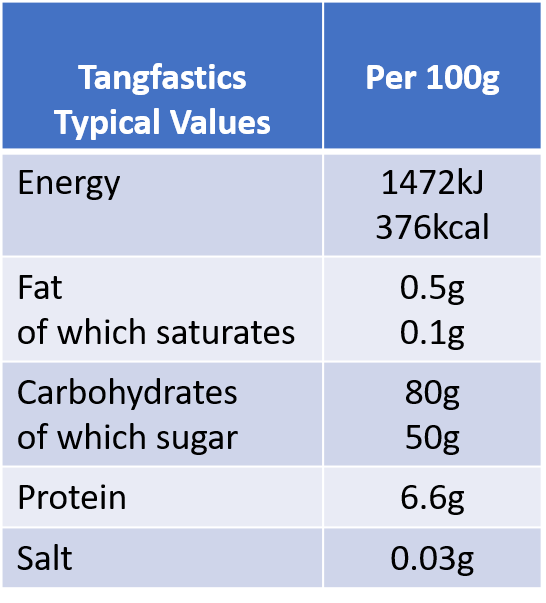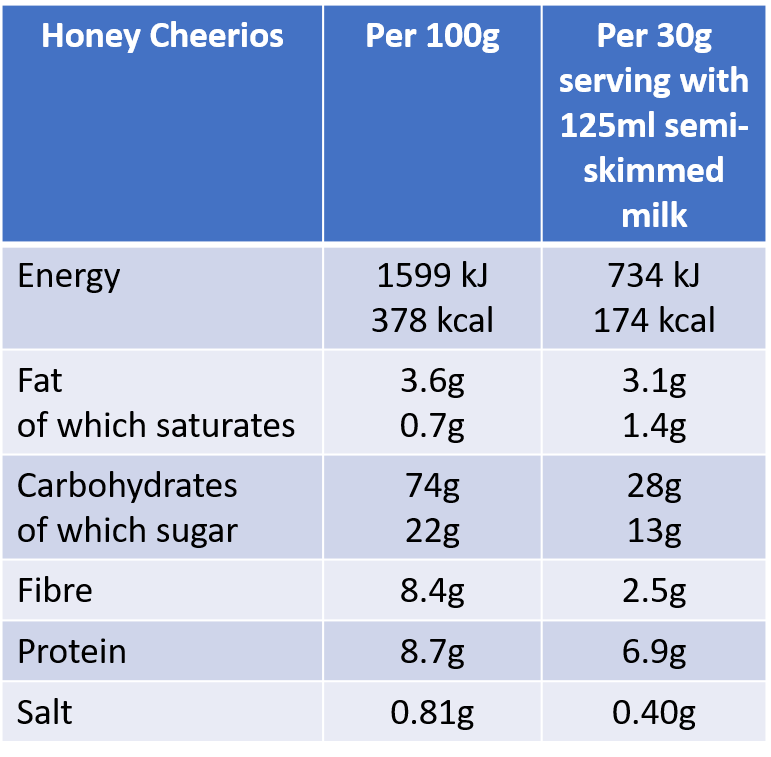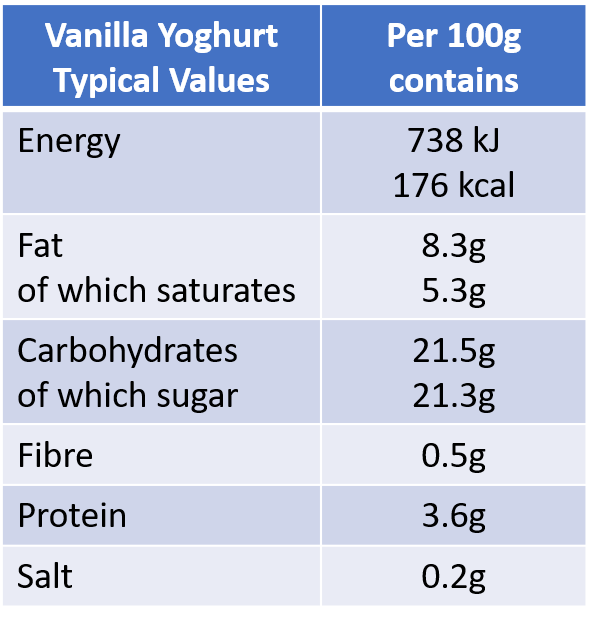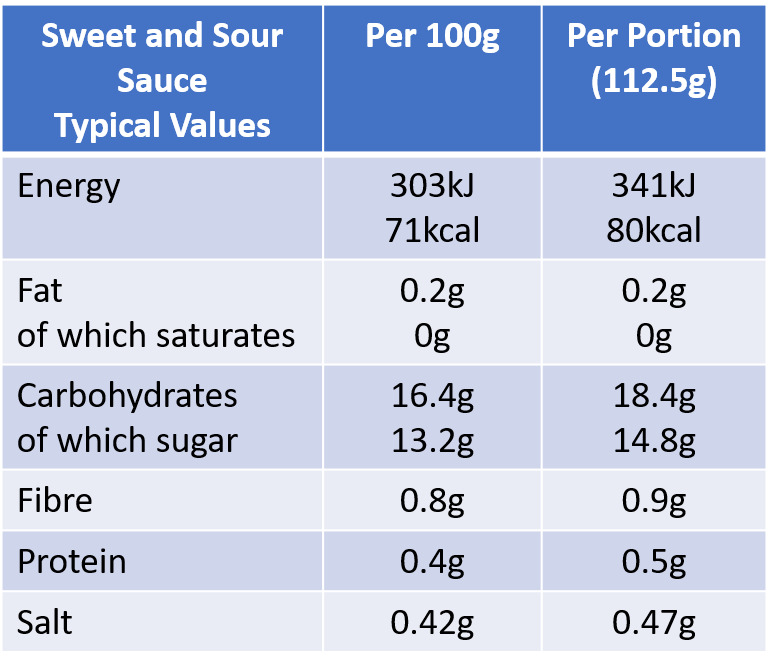
Understanding the information on food labels can be confusing and even knowing what to check can be a problem. Read nutritionist Glenville Nutrition’s tips on the 3 things to look at for healthier choices or watch her in action on Virgin Media Saturday AM.
- Sugar
Aside from fruit and veg, it is estimated that almost 85% of the products available in the supermarket have some form of sugar or sweetener added. Research clearly shows us that this high sugar diet is causing problems, not just for our teeth, but also for our waistlines and health. This includes increasing our risk of certain cancers, cardiovascular disease and Alzheimers. Some food manufacturers are reducing the sugar content of their products, but it is still appearing in quantities that are far too high and in foods where you would not expect it, like yoghurts, cereals and cooking sauces.
The World Health Organisation recommends that we eat no more than 6 tsp added sugar (9 tsp for men, half that for children and none for under 3s). That might seem a lot, but most of us are having well in excess of that with the average Irish person having 24 tsp of sugar per day, which adds up to 35 bags of sugar per year.
So how do you know how much sugar a product contains? On the label, look for ‘carbohydrates, of which sugar’. This will be given in grams. 4g = 1 tsp so to get the number of tsp, divide the grams by 4. Can be handy to bring a calculator with you to work this out!

Of course we know that foods like jellies are a treat. However most of us don’t realise how much sugar they contain. If we look at the nutritional information on this packet of jellies, we can see that it contains 50g per 100g, so it’s 50% sugar. The bag holds 140g, so the bag contains 70g sugar (17.5 tsp).
Most brands of chewy sweets have similar levels of sugar, including the ones labelled natural. Even tiny fun size bags of jellies usually have around 4 tsp of sugar each, which is more than the added sugar a child should be getting per day.
- Serving Size
The second thing to look at is serving size, because nutritional information will often be related to that. For example, some packs of jellies will provide the information per serving size, which is around 4 sweets for some.
And that’s where something like cereals can get complicated. These are supposed to be healthy and are often labelled ‘whole wheat’, ‘natural’ and ‘low fat’. However, some cereals are loaded with sugar and because some of the nutritional information including the traffic light information on the front of the pack is given per serving size, we underestimate how much we are eating. Try measuring out the recommended amount of your favourite cereal to see how small a serving size really is!

On this label for a whole wheat cereal, we can see that there is 13g of sugar per 30g serving. That’s already more than 3 tsp of sugar. But 30g is quite a small amount, and I think a lot of people would be eating more than that and getting more than they realise.
- Ingredients
The third thing to look for is ingredients. These are listed in order of preponderance, so the first five ingredients will usually make up the majority of the product. If you see sugar, or a form of sugar listed in the first 5 ingredients, it’s probably a product that you want to avoid or eat only occasionally. It won’t necessarily be called sugar either, it might be called glucose, syrup, dextrose or any of the other 55+ names for different types of sugar, from dextrose to syrup, glucose, glucose syrup…. The jellies that we looked at contained 4 different forms of sugar. Even natural sweeteners like honey and maple syrup add to our sugar intake.
Another category where it pays to look at sugar levels, serving size and ingredients is yoghurts. We think of these as healthy products and while they can be, many of them contain more sugar than ice cream or dessert.

This Vanilla yoghurt has 21.3g sugar per 100g. But the tub, which is a serving, is 150g and therefore has 32g sugar or 8 tsp sugar. You almost need to get a calculator out to work it out!

And if we look at the ingredient list for the yoghurt, we can see that sugar is the second ingredient after milk and that it also contains a second form of sugar.
We don’t want to put you off yoghurts. They can be a great source of calcium and protein for many people, as well as a source of beneficial bacteria. But it’s important to have a look at the label. Even full fat natural yoghurt will have 5 – 6g per 100g of naturally occurring sugar, called lactose. However, if you see more than that, you need to have a closer look at the label and maybe leave that one behind.
Another category where it’s important to check ingredients are cooking sauces. Tomato sauces hit the headlines a couple of years ago when they were classified as treats due to their sugar content. Some stir fry and sweet and sour sauces are far worse.

This jar of sweet and sour sauce contains 14.8g sugar (almost 4 tsp) sugar per ¼ jar serving or 15 tsp per jar. Some store brand version contain ever more.

And when we look at the ingredient list, we can see that sugar is the third ingredient on the list. The good news with this ingredient list is that it does not contain any preservatives or artificial ingredients, which is not the case with many other sauces..
We don’t mean never have your treats. But we do recommend that you have a look at the labels of the foods you are eating frequently to understand what really is healthy and what is an occasional treat.

